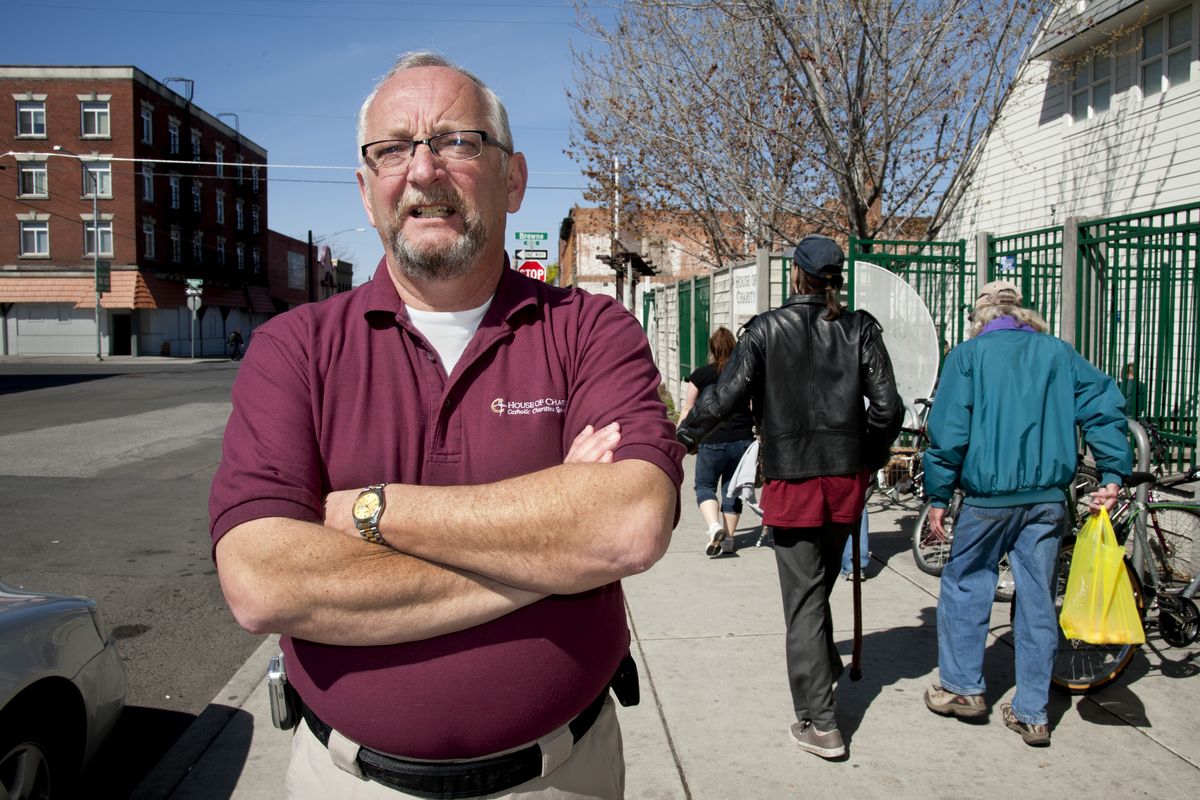Vestal: Homeless problems can be eased by familiarity, trust

Might it be possible that the “thing to do” about downtown loitering – about the discomfort inflicted by the smokers, skaters, panhandlers, ruffians, ne’er-do-wells and others clogging up the tidy business lanes and walkways – is just …. learn their names?
Probably not. It’s not that simple. And yet, as we consider new ways to drive out the “nuisance populations” from our downtown areas, it may be that the homeless shelter on the east end of downtown has some lessons to share.
A key one is this: Building relationships with “those people” pays off.
Several years ago, buffeted with complaints from neighbors, the House of Charity hired a safety coordinator to walk the sidewalks, build connections with the men hanging out there, check with businesses to make sure everything was going OK and handle the inevitable problems that erupt with troubled people. The result is fewer problems and complaints in a neighborhood where new developments, such as the Spokane Public Market, are coexisting with the shelter.
“They’ve been pretty great” as neighbors, said Kristi Fountain, an assistant manager at Sun People Dry Goods, which opened in 2010 and anchors the market. Fountain said when the store opened, House of Charity officials reached out to them to let them know they would be available to handle any problems that resulted.
In many ways, of course, the House of Charity’s experiences are not perfectly analogous to the downtown business community. Chief among them is the fact that the shelter offers services for the men on the street – one of the strategies it can employ is to offer to bring someone inside for a meal.
Still, the basic idea behind the shelter’s safety coordinator problem is sound, and broadly applicable, said Jim Nicks, the former assistant police chief in Spokane and current operations director for Catholic Charities. Nicks helped develop the shelter’s safety coordinator program, and he said he’s seen similar approaches work through the city police department – in times when SPD had enough officers to devote to the effort.
“When they were able to dedicate the resources down there they were able to form relationships with the kids,” Nicks said of the SPD. “We have the luxury to have constant relationship-building.”
For the past seven years or so, the right person with the right attitude was Dave Barrett. A retired Los Angeles police officer and Marine, Barrett was hired as the shelter’s first safety coordinator – the liaison to the neighborhood, the outside guy. One of his main jobs was just to be out there, interacting with people on the streets, walking the blocks, joking around, busting chops – and enforcing the rules.
Here is the way Rob McCann, executive director of Catholic Charities, which runs the shelter, described Barrett in a recent online post on a story at The Spokesman-Review’s website: “Over the span of 7 years he got to know all of the clients of the House of Charity and in essence a vast majority of the homeless, vulnerable street people of Spokane. He knew their name, their life stories, their struggles. He spent time listening to them, being respectful to them and genuinely caring about them. They trusted him, liked him and when the times came and he needed to, he asked them to move along or stop doing some behavior they should not be doing, whether it be drinking, loitering, panhandling, etc. When he asked them, they listened and complied. … It can be done with a chronically dual diagnosed homeless population who suffer from mental illness and substance abuse. It can be done downtown with young people as well. It all starts with understanding, respect and compassion. Those are the tools that win hearts and minds.”
Barrett’s success may have been best illustrated by something he never lived to see. He died in March; his funeral was held at the House of Charity, complete with military honors. The shelter’s dining room was packed with around 100 people, the vast majority of whom were the people he had been hired to keep in line.
The shelter is moving forward with the program. Instead of a single safety coordinator, it will now have two half-time coordinators – retired SPD Officer Jon Strickland and soon-to-retire SPD Officer Max Hewitt.
Nicks said those two men bring the right background to extend Barrett’s legacy.
“It takes constant vigilance by the right people with the right attitude,” he said.